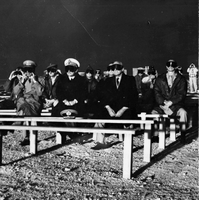NATO is slated to adopt a new Strategic Concept in November, a document that will serve as a guide for the alliance in what might be called the "post-post Cold War" world. NATO does not revisit its basic guidance often -- the last Strategic Concept was approved in 1999. So it is important to craft an enduring statement, as it will likely stand for the next decade. With global support for nuclear arms control and disarmament gathering momentum, it might seem like an appropriate moment for NATO to fundamentally rethink its approach to the role that nuclear weapons play in its strategic posture. Instead, the alliance is likely to stress continuity, with nuclear weapons continuing to occupy a significant position in its new Strategic Concept.
This would appear to be counter to the spirit of the times, in which nuclear abolitionists seem to be in ascendance. The Global Zero initiative, launched by some of the most hard-nosed figures of the Cold War, such as Henry Kissinger and George Shultz, has been endorsed by a variety of international statesmen, including several from NATO countries. Most significantly, President Barack Obama voiced his support for the complete elimination of nuclear weapons, albeit with qualifications on the timeframe. Given the zeitgeist, it seems odd that a political and military alliance composed of many of the world's developed democracies would take such an apparently regressive stance. Indeed, if NATO reaffirms the role of nuclear weapons in the new Strategic Concept, including the existing arrangements for extended deterrence, critics likely will argue that it is sending precisely the wrong message on the Global Zero initiative and undermining attempts to strengthen the nonproliferation regime.
Why are nuclear weapons likely to remain a part of NATO strategy despite the fact that its members all abide by the terms of the Nuclear Non-Proliferation Treaty (NPT) and support nonproliferations efforts? The short answer is that nuclear weapons continue to play an important political role in the alliance as the ultimate deterrent against the unknown. Moreover, the arrangements for extended deterrence have assumed a symbolic significance for several of the new members, making it difficult to revisit them without disturbing the alliance's equilibrium.

